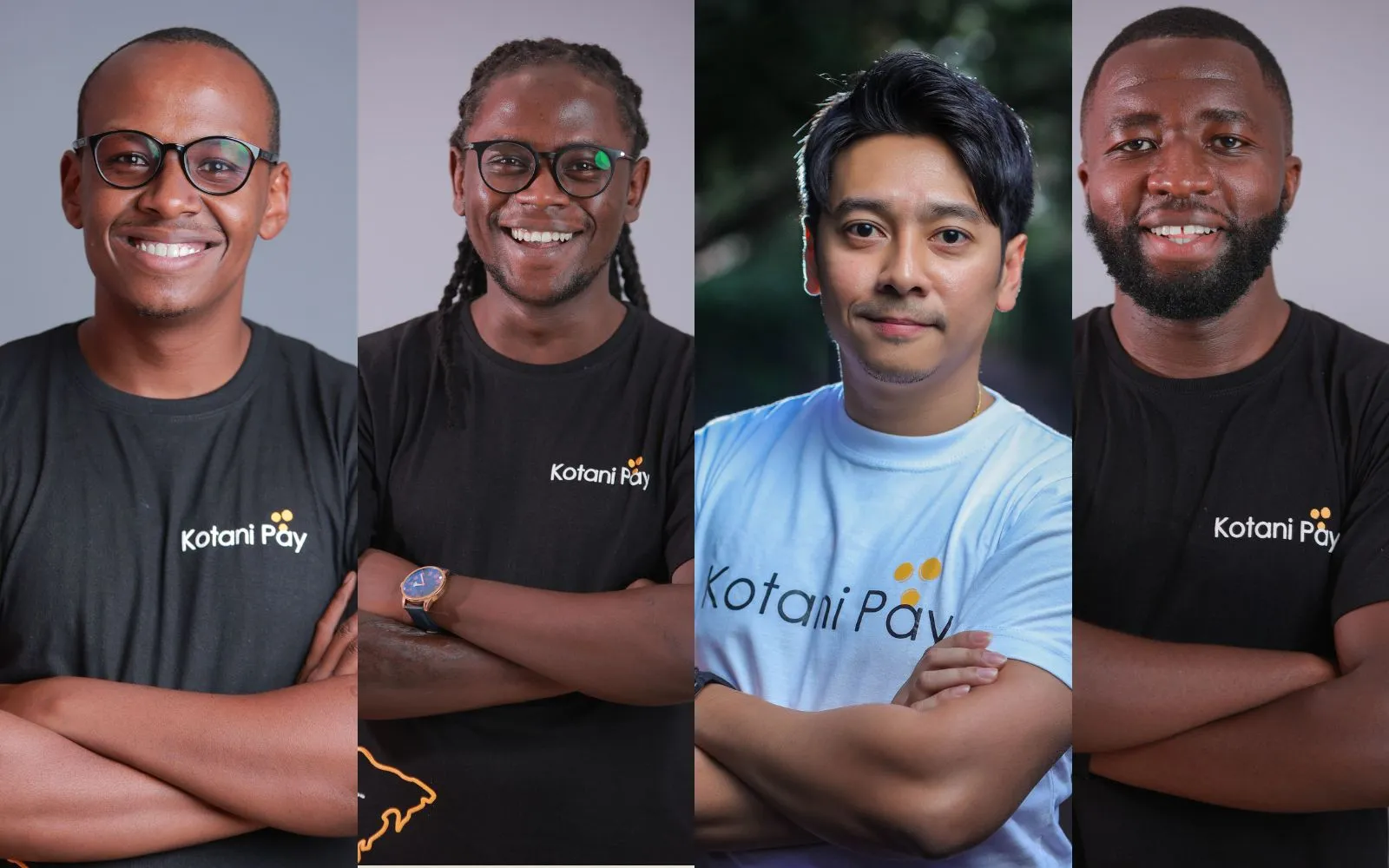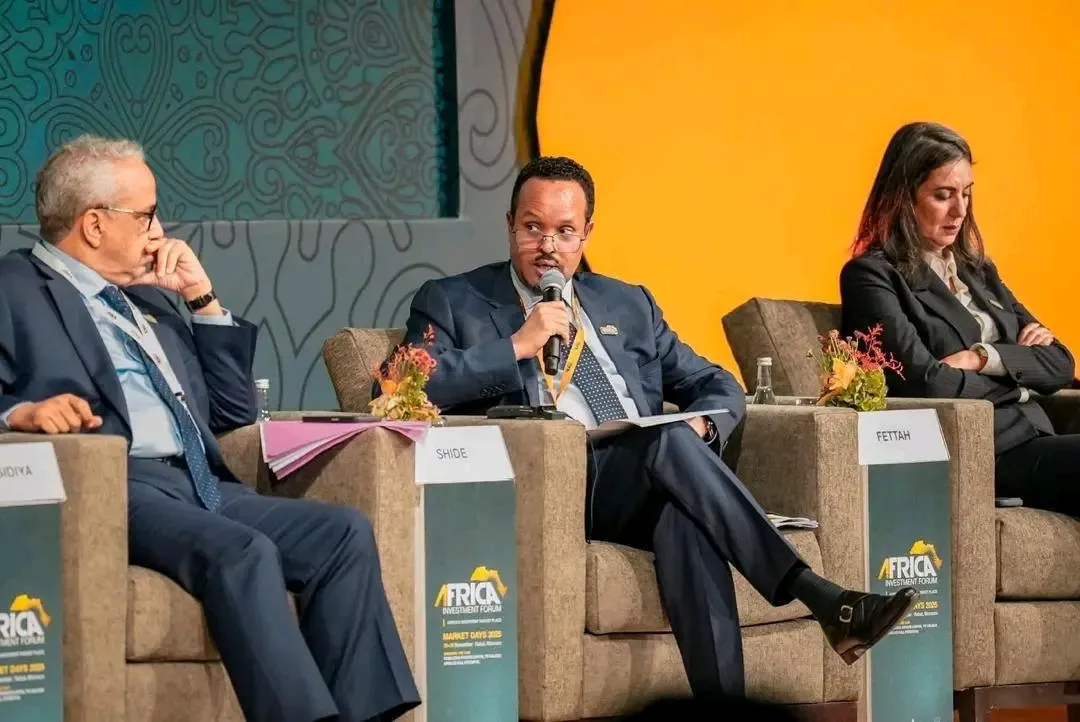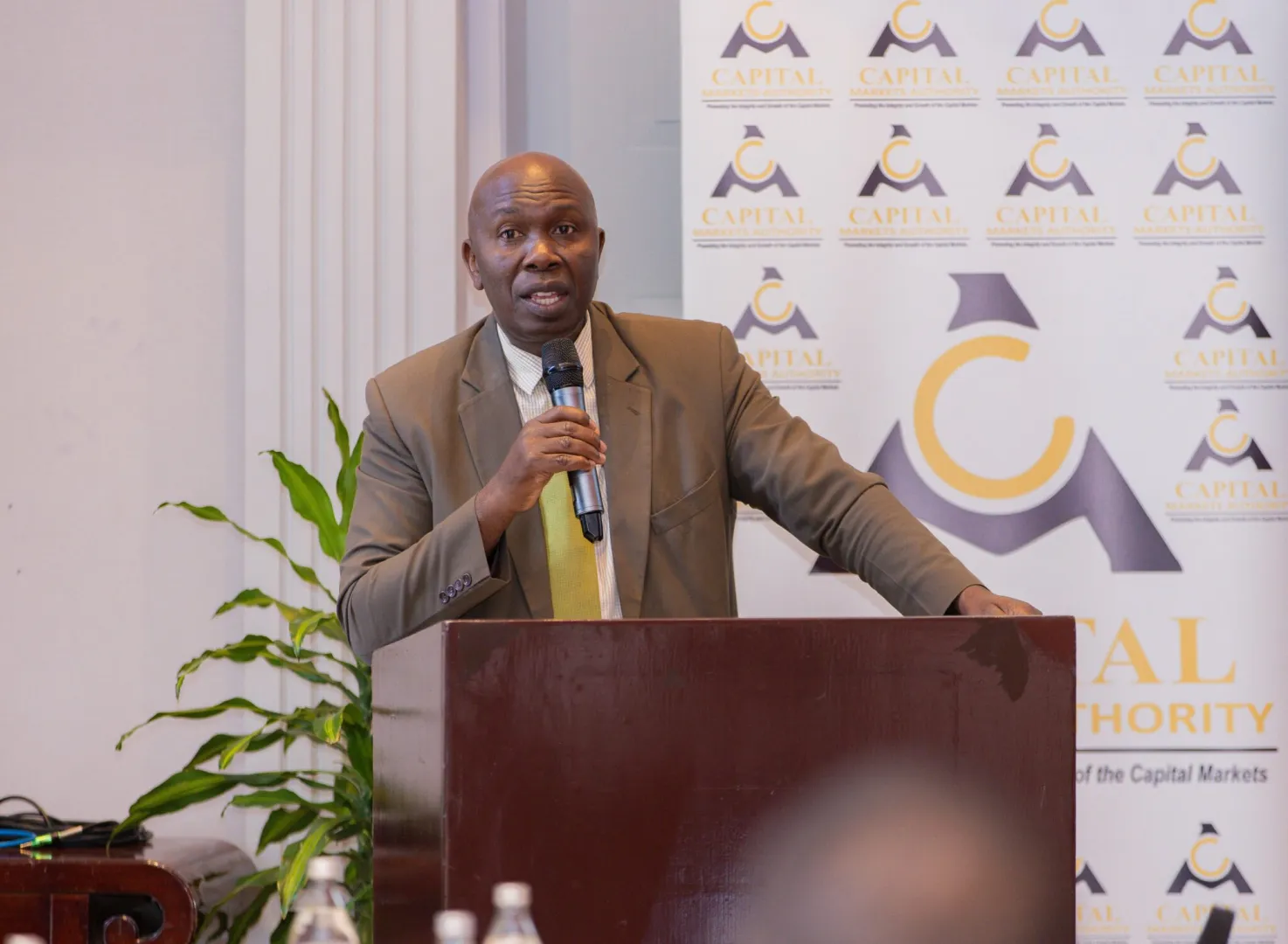Tether, the company behind the world’s largest stablecoin USDT, has made a strategic investment in Kenyan fintech startup Kotani Pay, marking a significant milestone in the evolution of Africa’s digital asset ecosystem. This investment underscores the growing recognition of Africa as an emerging hub for blockchain technology and cryptocurrency adoption, despite the continent representing the smallest crypto market globally by volume.
The partnership between Tether and Kotani Pay aims to address critical infrastructure gaps that have historically limited African access to global digital financial systems. By strengthening local on-ramp and off-ramp infrastructure, the collaboration seeks to enable easier access to cryptocurrencies and facilitate seamless cross-border payments for both individuals and businesses across the continent.
Build the future you deserve. Get started with our top-tier Online courses: ACCA, HESI A2, ATI TEAS 7, HESI EXIT, NCLEX-RN, NCLEX-PN, and Financial Literacy. Let Serrari Ed guide your path to success. Enroll today.
Bridging the Gap: Kotani Pay’s Infrastructure Solution
Kotani Pay, officially registered as a Crypto Asset Service Provider in Kenya, has developed an extensive network that connects African users to local payment channels, effectively bridging the gap between traditional financial systems and blockchain technology. The platform has been instrumental in addressing longstanding challenges that have plagued financial transactions in Africa, including prohibitively high transaction costs, slow settlement times, and severely limited access to international financial systems.
The fintech startup has built its reputation on creating practical solutions that allow users to interact with blockchain-based systems using familiar local payment methods such as mobile money platforms. This approach has been crucial in a continent where mobile money adoption far exceeds traditional banking penetration, particularly in East African markets like Kenya, where M-Pesa has revolutionized financial inclusion.
“At Kotani Pay, we have been fortunate to witness and build on the rising usage of blockchain technology on the continent across a variety of use cases,” said Felix Macharia, CEO and Co-founder at Kotani Pay. “This strategic investment from Tether better positions us to continue our work as a bridge to the on-chain economy, connecting millions of Africans to the global financial system.”
Tether’s Global Milestone and African Ambitions
Tether’s investment in Kotani Pay comes at a pivotal moment for the stablecoin issuer, which recently celebrated reaching 500 million users worldwide and maintaining a total USDT stablecoin supply of approximately US$182 billion. These figures cement Tether’s position as the dominant player in the stablecoin market, with USDT serving as the primary medium of exchange for cryptocurrency transactions globally.
The move into African markets represents a strategic expansion for Tether, which has traditionally focused on established crypto markets in North America, Europe, and Asia. By investing in local infrastructure through partnerships like the one with Kotani Pay, Tether is positioning itself to capture growing demand in emerging markets where cryptocurrency adoption is driven by practical necessity rather than speculative interest.
Paolo Ardoino, CEO of Tether, emphasized the strategic fit of the partnership: “Kotani Pay’s vision and strong regional presence makes it the right fit to drive our shared goals in Africa. Together, we aim to provide businesses and individuals with access to digital assets for their global operations, reduce friction in cross-border transactions, and build a more inclusive financial future while promoting the informed use of digital assets.”
Africa’s Growing Crypto Market: Data and Trends
According to Chainalysis, a leading blockchain data platform, Sub-Saharan Africa remains the smallest cryptocurrency market globally when measured by absolute transaction volume. However, the region is experiencing sharp growth in adoption rates and on-chain activity. Between July 2024 and June 2025, on-chain crypto activity in the region reached more than US$205 billion, representing significant year-over-year growth.
Key markets driving this expansion include Nigeria, Kenya, South Africa, and Ethiopia. These countries are leading the charge in grassroots cryptocurrency adoption, despite facing challenges such as limited traditional banking infrastructure, high inflation rates, and volatile local currencies that have lost significant value against major global currencies.
Nigeria, in particular, has emerged as one of the world’s leaders in peer-to-peer cryptocurrency trading volume, with citizens increasingly turning to digital assets as a hedge against the naira’s devaluation and as a means to facilitate international transactions. The Central Bank of Nigeria has implemented various regulatory measures to manage cryptocurrency usage, reflecting the significant role digital assets play in the country’s financial landscape.
Kenya has similarly seen substantial growth in cryptocurrency adoption, driven by the country’s advanced mobile money infrastructure and a population comfortable with digital financial services. The Capital Markets Authority of Kenya has been working to develop comprehensive regulatory frameworks to govern crypto asset service providers, providing clarity and legitimacy to the sector.
Practical Use Cases Driving Adoption
While speculative trading has often dominated media coverage of cryptocurrency in Africa, analysts note that the current trend reflects increasingly practical use cases. Remittances, in particular, represent a critical application for cryptocurrency in Africa. According to the World Bank, Sub-Saharan Africa received approximately US$54 billion in remittances in 2023, with traditional money transfer services charging average fees of 7-8% per transaction.
Cryptocurrency-based remittance solutions can potentially reduce these costs dramatically, allowing migrants to send more money home to their families. Platforms like Kotani Pay enable recipients to receive digital assets and immediately convert them to local currency through mobile money systems, eliminating the need for bank accounts or physical cash pickup locations.
Small and medium-sized enterprises (SMEs) across the continent are also finding value in cryptocurrency for operational payments and cross-border trade. The combination of Kotani Pay’s local infrastructure and Tether’s liquidity could significantly reduce friction in international payments, provide direct access to global markets, and enable African businesses to compete more effectively in the global economy.
Import-export businesses, for instance, can use stablecoins like USDT to make payments to international suppliers without dealing with complex currency conversions, high banking fees, or lengthy settlement times. This capability is particularly valuable in countries where foreign exchange controls or banking restrictions limit access to hard currencies for international trade.
One decision can change your entire career. Take that step with our Online courses in ACCA, HESI A2, ATI TEAS 7, HESI EXIT, NCLEX-RN, NCLEX-PN, and Financial Literacy. Join Serrari Ed and start building your brighter future today.
Strategic Partnerships and Ecosystem Development
Founded in 2020 by Brian Kimotho, Daniel Kimotho, Felix Macharia, Samuel Kariuki, and Stephen Kiarie, Kotani Pay has built an impressive network of strategic partnerships that extend beyond the Tether investment. The company has collaborated with several notable players in the cryptocurrency and blockchain space, each bringing unique value to the platform’s ecosystem.
Yellowcard, a pan-African cryptocurrency exchange, has partnered with Kotani Pay to expand access to digital assets across multiple African countries. This partnership enables users to buy, sell, and store cryptocurrencies while leveraging Kotani Pay’s infrastructure for seamless local currency conversions.
The company has also worked with Digital Currency Group (DCG), one of the most influential venture capital firms in the cryptocurrency industry, which has provided both capital and strategic guidance to help scale operations. Additionally, partnerships with Celo’s Valora wallet and Mercy Corps, an international humanitarian organization, have enabled Kotani Pay to explore use cases in humanitarian aid distribution and financial inclusion projects.
These partnerships demonstrate Kotani Pay’s strategic positioning at the intersection of traditional finance, mobile technology, and blockchain innovation. By building relationships with established players across different sectors, the company has created a robust ecosystem that can serve diverse use cases and user segments.
Regulatory Landscape and Challenges
The growth of cryptocurrency adoption in Africa is occurring against a complex and evolving regulatory backdrop. Different countries across the continent have taken varied approaches to digital asset regulation, ranging from outright bans to progressive regulatory frameworks designed to encourage innovation while protecting consumers.
Kenya has adopted a relatively progressive stance, with the Capital Markets Authority taking steps to regulate crypto asset service providers while avoiding overly restrictive measures that might stifle innovation. This regulatory approach has helped Kenya emerge as a regional hub for blockchain innovation and cryptocurrency adoption.
However, challenges remain. Many African countries lack clear regulatory frameworks for cryptocurrency, creating uncertainty for businesses and users. Currency controls, anti-money laundering concerns, and fears about capital flight have led some governments to restrict cryptocurrency activities, even as grassroots adoption continues to grow.
The Tether-Kotani Pay partnership will need to navigate these regulatory complexities carefully, ensuring compliance with local laws while advocating for sensible regulations that protect consumers without unnecessarily limiting access to beneficial financial technologies.
Financial Inclusion and Economic Impact
At its core, the Tether investment in Kotani Pay represents a bet on cryptocurrency’s potential to drive financial inclusion across Africa. According to the African Development Bank, approximately 57% of Africa’s adult population remains unbanked or underbanked, lacking access to basic financial services that many in developed economies take for granted.
Traditional banking infrastructure has struggled to reach rural and underserved populations due to high costs, geographic barriers, and regulatory requirements. Cryptocurrency and blockchain technology offer an alternative pathway to financial inclusion, enabling people with just a smartphone and internet connection to access global financial services.
Mobile money platforms like M-Pesa have already demonstrated the transformative potential of digital financial services in Africa, with Kenya achieving near-universal adoption of mobile money among its adult population. Cryptocurrency builds on this foundation, offering additional capabilities such as programmable money, transparent transactions, and access to global markets without intermediaries.
The economic impact of improved financial access could be substantial. Small businesses could access working capital through decentralized finance protocols, farmers could receive payments directly from international buyers, and individuals could save in stable digital currencies that protect their wealth from local currency devaluation.
Looking Ahead: Future Prospects and Challenges
The Tether-Kotani Pay partnership positions both companies to capitalize on Africa’s growing cryptocurrency market, but significant challenges remain. Infrastructure limitations, including inconsistent internet connectivity and limited smartphone penetration in rural areas, continue to restrict access for some populations.
Education and awareness also present ongoing challenges. Many potential users remain unfamiliar with cryptocurrency concepts or harbor misconceptions about digital assets based on media coverage of scams and market volatility. Building trust and understanding will require sustained education efforts and positive user experiences.
Competition in the African fintech space is intensifying, with both local startups and international companies vying for market share. Kotani Pay will need to continue innovating and expanding its services to maintain its competitive position and justify Tether’s investment confidence.
However, the fundamentals supporting cryptocurrency adoption in Africa remain strong. Currency instability, limited banking access, high remittance costs, and growing youth populations comfortable with digital technology create powerful tailwinds for continued growth. If Kotani Pay can successfully leverage Tether’s resources and expertise while navigating regulatory challenges and building user trust, the partnership could play a significant role in shaping Africa’s financial future.
Conclusion
Tether’s strategic investment in Kotani Pay represents more than a simple capital injection into an African fintech startup. It signals growing institutional recognition of Africa’s potential as a cryptocurrency market and the practical value of blockchain technology in addressing real-world financial challenges faced by millions of people across the continent.
By strengthening local infrastructure and making cryptocurrency more accessible through familiar payment channels, the partnership aims to move beyond speculative trading toward practical applications that can improve financial inclusion, reduce transaction costs, and connect African businesses and individuals to the global economy.
As the cryptocurrency industry matures and focuses increasingly on utility rather than speculation, partnerships like this one between established global players and innovative local companies may prove instrumental in realizing blockchain technology’s potential to transform financial services in emerging markets. The success of this collaboration could serve as a model for similar initiatives across Africa and other developing regions, demonstrating that cryptocurrency can be a tool for economic empowerment and financial inclusion rather than merely an asset for speculation.
Ready to take your career to the next level? Join our Online courses: ACCA, HESI A2, ATI TEAS 7 , HESI EXIT , NCLEX – RN and NCLEX – PN, Financial Literacy!🌟 Dive into a world of opportunities and empower yourself for success. Explore more at Serrari Ed and start your exciting journey today! ✨
Track GDP, Inflation and Central Bank rates for top African markets with Serrari’s comparator tool.
See today’s Treasury bonds and Money market funds movement across financial service providers in Kenya, using Serrari’s comparator tools.
photo source: Google
By: Montel Kamau
Serrari Financial Analyst
23rd October, 2025
Article, Financial and News Disclaimer
The Value of a Financial Advisor
While this article offers valuable insights, it is essential to recognize that personal finance can be highly complex and unique to each individual. A financial advisor provides professional expertise and personalized guidance to help you make well-informed decisions tailored to your specific circumstances and goals.
Beyond offering knowledge, a financial advisor serves as a trusted partner to help you stay disciplined, avoid common pitfalls, and remain focused on your long-term objectives. Their perspective and experience can complement your own efforts, enhancing your financial well-being and ensuring a more confident approach to managing your finances.
Disclaimer: This article is for informational purposes only and does not constitute financial advice. Readers are encouraged to consult a licensed financial advisor to obtain guidance specific to their financial situation.
Article and News Disclaimer
The information provided on www.serrarigroup.com is for general informational purposes only. While we strive to keep the information up to date and accurate, we make no representations or warranties of any kind, express or implied, about the completeness, accuracy, reliability, suitability, or availability with respect to the website or the information, products, services, or related graphics contained on the website for any purpose. Any reliance you place on such information is therefore strictly at your own risk.
www.serrarigroup.com is not responsible for any errors or omissions, or for the results obtained from the use of this information. All information on the website is provided on an as-is basis, with no guarantee of completeness, accuracy, timeliness, or of the results obtained from the use of this information, and without warranty of any kind, express or implied, including but not limited to warranties of performance, merchantability, and fitness for a particular purpose.
In no event will www.serrarigroup.com be liable to you or anyone else for any decision made or action taken in reliance on the information provided on the website or for any consequential, special, or similar damages, even if advised of the possibility of such damages.
The articles, news, and information presented on www.serrarigroup.com reflect the opinions of the respective authors and contributors and do not necessarily represent the views of the website or its management. Any views or opinions expressed are solely those of the individual authors and do not represent the website's views or opinions as a whole.
The content on www.serrarigroup.com may include links to external websites, which are provided for convenience and informational purposes only. We have no control over the nature, content, and availability of those sites. The inclusion of any links does not necessarily imply a recommendation or endorsement of the views expressed within them.
Every effort is made to keep the website up and running smoothly. However, www.serrarigroup.com takes no responsibility for, and will not be liable for, the website being temporarily unavailable due to technical issues beyond our control.
Please note that laws, regulations, and information can change rapidly, and we advise you to conduct further research and seek professional advice when necessary.
By using www.serrarigroup.com, you agree to this disclaimer and its terms. If you do not agree with this disclaimer, please do not use the website.
www.serrarigroup.com, reserves the right to update, modify, or remove any part of this disclaimer without prior notice. It is your responsibility to review this disclaimer periodically for changes.
Serrari Group 2025
















